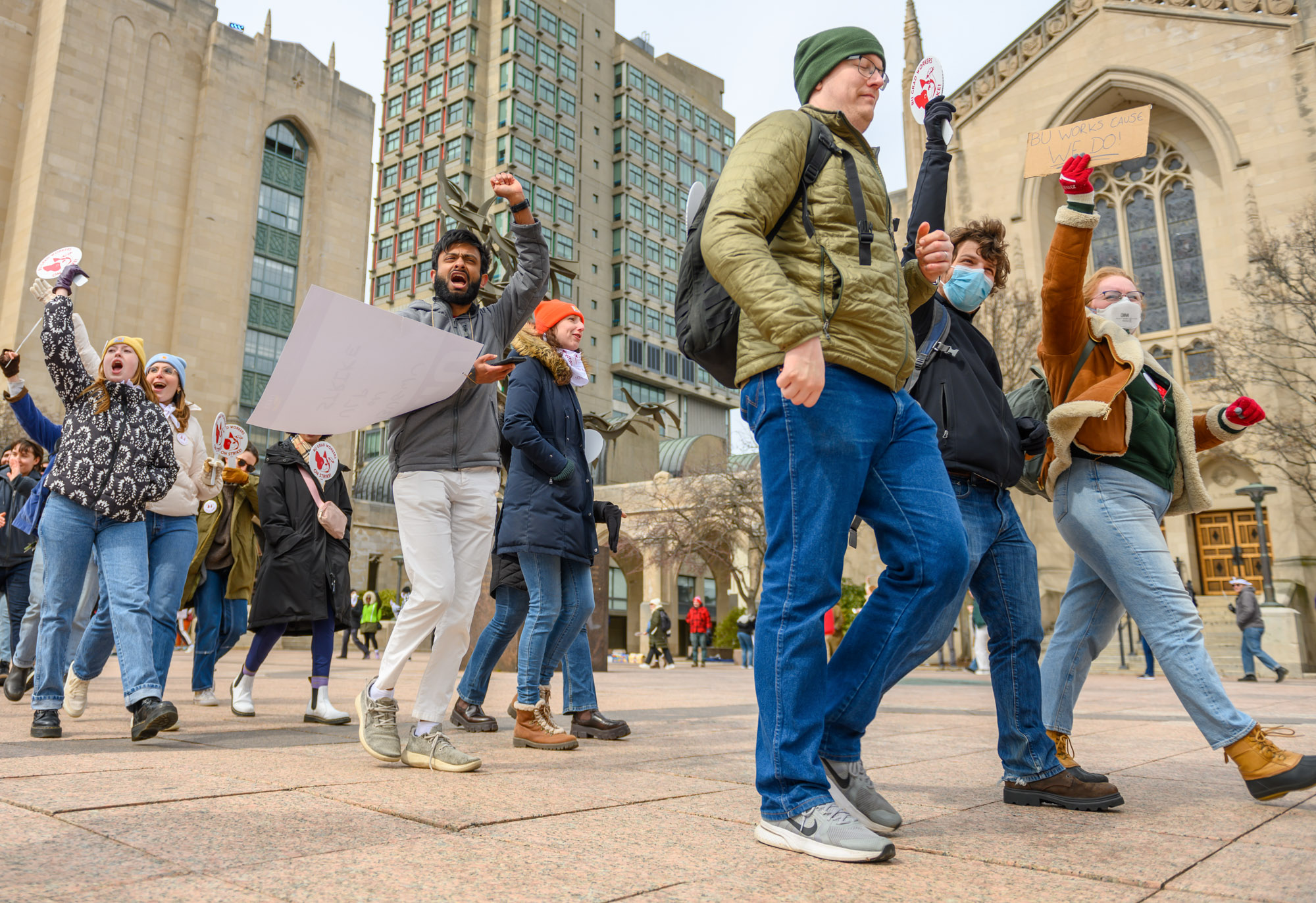See more Daily Free Press coverage of the BUGWU strike here.
Boston University faculty and staff successfully petitioned this week in support of the Boston University Graduate Workers Union after administration required departments to report striking students.
After 14 failed negotiation meetings with BU administration, BUGWU began their strike on March 25, advocating for living wages and sustainable benefits.

Kenneth Lutchen, University Provost and Chief Academic Officer, sent an email to BU faculty and staff on March 26, announcing the decision that the university will not be paying students who are striking. They would also require university departments to report any graduate workers on strike to the Provost office.
“Those who work will be paid, and those who withhold their labor in support of a labor strike will not be,” he wrote. “Refusing to account for payroll during this time is not ‘supporting our graduate students’ — it is making the choice to pay out University tuition … or federal grant money to graduate workers who are exercising a right to not work.”
In a petition, faculty and staff wrote that BU “remains committed to financially punishing non-compliant departments,” and that the policy will damage relationships with graduate workers.
“We see asking this question and then reporting it to the central administration as both a moral and political breach of our obligations to students,” the petition wrote. “Please do not coerce us into jeopardizing the core of Boston University’s graduate educational mission.”
The petition, which went live this week, was signed by over 160 faculty and staff.
Faculty and staff also wrote that they were “intentionally” left out of the bargaining process and were unaware of negotiations with BUGWU.
“Student-facing faculty were excluded from union negotiations,” said Boston University staff in their petition to the Provost’s office. “For months, we were even intentionally kept ignorant of the University’s bargaining position.”
Kimberly Arkin, an associate professor and director of graduate studies in the Anthropology Department at Boston University, said administrators began only deducting pay from faculty and staff who did not report strikers.
“They were going to find out who is not working and retroactively deduct from our budget,” Arkin said. “But at the beginning, they threatened to do that to our budget and to the students.”
Arkin also said faculty were “panicked” about the complicated financial “choice” she had to make because of the strike policy.
“I certainly was losing sleep over the idea that … I had to make a choice between the department and my students,” Arkin said.
Merry White, a professor of anthropology, said reporting her graduate students “didn’t feel like the right thing to do” because professors would be “turning them in.”
“We are deeply tied to our graduate students, we are their link to their current work and their future careers,” White said. “It’s problematic to be guided by the Provost office, in how to work with our graduate students over the strike, when we really want to maintain our close relationship with our students.”
Avani Sudhakar, an administrator in the Political Science Department, said the provost was “pushing their dirty work” onto the faculty and staff by changing the policy.
“There’s the concern about the undergrads getting caught in the crossfire of all of this,” Sudhakar said. “Emotions are running high, but I feel like, at least in my department, there’s a general sense that we’re very much on the grad students’ side.”
Nikunj Khetan, a student pursuing a doctorate at BU, said having the wide support of many faculty and staff is “reflective” of their movement.
“If we were standing, then a rising tide lifts all boats,” Khetan said. “This is going to be beneficial to all members of the university, regardless of what their position is.”























































































































